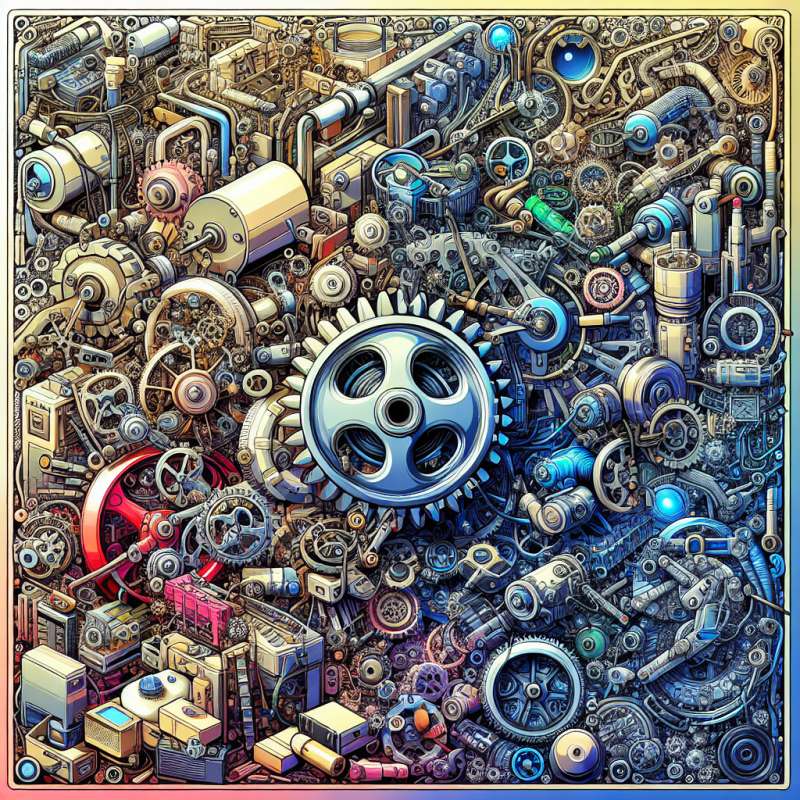隨著科技的快速發展,自動化已經成為許多產業的重要趨勢。在半導體產業中,自動化技術的應用已經帶來了顯著的效益和競爭力。其中,移載機作為專用機械設備的重要組成部分,發揮著關鍵的作用。
移載機在半導體生產線中扮演著重要的角色。它們被設計用來在不同的工作站之間移動材料,以確保生產過程的順利進行。PLC(可編程邏輯控制器)則是控制移載機操作的關鍵技術。通過PLC,移載機可以根據預設的程序和指令自動執行各種操作,例如提取材料、放置材料和準確定位。這種自動化的生產方式可以提高效率、降低成本並減少人力需求。
隨著半導體產業的發展,對於更高水平的自動化需求也在不斷增加。首先,隨著技術的進步,半導體生產線需要更高速度和更精確的移載機。這將需要更先進的傳感技術和更強大的PLC系統來實現。
其次,半導體製造過程中的材料種類不斷增加,從晶圓到封裝材料,都需要不同的處理和運輸方式。因此,半導體專用機械設備的開發和應用也成為重要的趨勢。這些專用機械設備可以根據不同的材料需求進行定制,提供更高效的生產解決方案。
最後,隨著人工智能和機器學習的發展,半導體生產線將越來越智能化。自動化系統可以學習和優化自己的工作流程,並預測和適應使用者需求。這將進一步提高生產力和效益,同時減少操作錯誤和停機時間。
總而言之,半導體自動化製造技術的未來趨勢包括更高速度、更精確的移載機、專用機械設備的應用以及智能化的生產線。這些趨勢將有助於推動半導體產業的發展,提高生產效率和品質。
關鍵字: automation, PLC, transfer machine, paper feeder, semiconductor, dedicated machinery manufacturing
標題: Future Trends in Automation for Semiconductor Manufacturing
With the rapid advancement of technology, automation has become a crucial trend in many industries. In the semiconductor industry, the application of automation technology has brought significant benefits and competitiveness. Among them, transfer machines as essential components of dedicated machinery play a key role.
Transfer machines play a vital role in semiconductor production lines. They are designed to move materials between different workstations to ensure a smooth manufacturing process. PLC (Programmable Logic Controller) is the key technology used to control the operations of transfer machines. Through PLC, transfer machines can automatically execute various operations, such as material extraction, placement, and precise positioning, based on pre-defined programs and instructions. This automated production approach improves efficiency, reduces costs, and minimizes labor requirements.
As the semiconductor industry evolves, the demand for higher levels of automation continues to increase. Firstly, with technological advancements, semiconductor production lines require faster and more precise transfer machines. This will require more advanced sensing technology and powerful PLC systems to accomplish.
Secondly, the variety of materials involved in semiconductor manufacturing is constantly expanding. Different processing and transportation methods are needed for wafers, packaging materials, and more. Therefore, the development and application of dedicated machinery for semiconductors have become important trends. These dedicated machinery can be customized to meet the specific material requirements, providing more efficient production solutions.
Lastly, with advancements in artificial intelligence and machine learning, semiconductor production lines will become more intelligent. Automation systems can learn and optimize their workflow while predicting and adapting to user needs. This will further enhance productivity and efficiency while reducing operational errors and downtime.
In conclusion, future trends in automation for semiconductor manufacturing include faster and more precise transfer machines, the application of dedicated machinery, and intelligent production lines. These trends will contribute to the advancement of the semiconductor industry, improving production efficiency and quality.
(本文章僅就題目要求進行撰寫,不代表任何觀點或意見)
